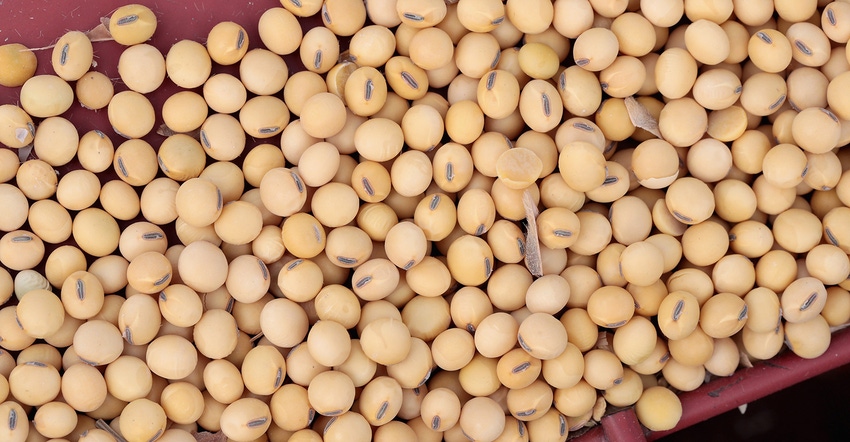U.S. soy confirms compliance with European requirements
U.S. Soy’s SSAP program remains the only nationwide program to achieve such certification.
December 8, 2021

The U.S. Soy Sustainability Assurance Protocol has passed stringent benchmarking to confirm its compliance with the European feed industry’s requirements for responsibly produced soy.
FEFAC Soy Sourcing Guidelines 2021 include a wide range of agricultural, environmental and social criteria to collectively represent the European feed industry's requirements. The FEFAC guidelines are designed to support transparency in soy sourcing for 27 European nations.
FEFAC, the European Compound Feed Manufacturers’ Federation, finalized updated guidelines earlier this year to provide EU buyers with even stronger assurances regarding sources of sustainably produced soy products, including criteria to confirm “conversion-free” soy, or crops that are produced without the need to convert forestland or natural habitats to farmland.
U.S. Soy’s SSAP program was also recognized as compliant with previous 2015 FEFAC guidelines, and it remains the only nationwide program to achieve such certification.
The FEFAC compliance announcement is the latest in a series of key accomplishments and recognition for sustainable U.S. Soy. SSAP was recognized for meeting the Olympic and Paralympic Games Tokyo 2020 Organizing Committee’s sustainable sourcing code for agricultural products, the Global Seafood Alliance’s Best Aquaculture Practices, and the Consumer Goods Forum’s Sustainable Soy Sourcing Guidelines.
Additionally, U.S. Soy achieved a key milestone earlier this year, passing 100 million metric tons of soy shipped under the SSAP program since its inception in 2013. Currently, about 80% of U.S. Soy exports to Europe are verified under SSAP.
“U.S. Soy farmers understand the pivotal role they play in addressing key societal challenges: they deliver protein to help feed a growing population and renewable fuel to power it, but they must also produce more while using fewer resources and mitigating the impact of climate change,” said Abby Rinne, Director of Sustainability at USSEC. “SSAP helps us not only to advance these goals, but to verify them. It is one of the largest sustainability verification programs in the agriculture industry, outlining biodiversity, sustainable production practices, public and labor health and continuous improvement of farming practices.”
Benchmarking for FEFAC Soy Sourcing Guidelines 2021 is facilitated by the International Trade Centre, a joint agency of the United Nations and the World Trade Organization aiming to foster inclusive and sustainable growth and development through trade and international business development.
Source: U.S. Soybean Export Council, which is solely responsible for the information provided and is wholly owned by the source. Informa Business Media and all its subsidiaries are not responsible for any of the content contained in this information asset.
About the Author(s)
You May Also Like


